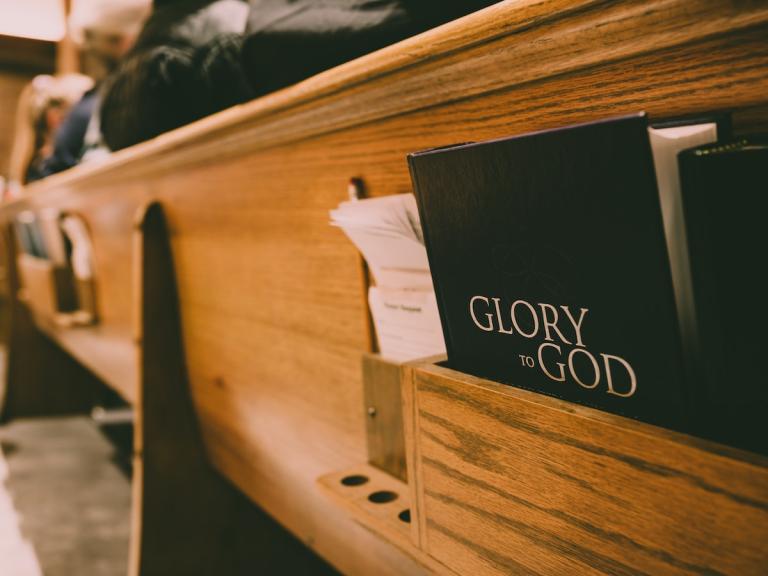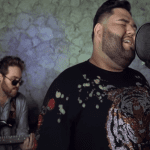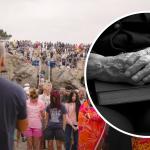
In the night, the worn sign looks like a beacon of darkness outside the modest, red-brick Mt. Hebron Baptist Church. It reads, “The tired, poor and huddled masses. Welcome home.”
In the small town in the rural northeast corner of Georgia, it’s the kind of message that reassures Teri Massey she’s loved for who she is, a statement that differs from the one she heard in the Baptist church where she spent her teens into her 40s, where her brother, father and grandfather all held leadership positions.
When Massey came out 19 years ago after meeting the woman she would later marry, the congregation in her home church responded by campaigning to send her to conversion therapy, holding prayer vigils outside her home. A few years later, she found Mt. Hebron through a friend. Pastor Grant Myerhotlz, who typically preaches in a t-shirt and jeans, met Massey and her wife at the door. The couple listened as he stood in the pulpit and said everyone was welcome. The 63-year-old recalled, “It was like this load was off of me.”
At a time when many churches are struggling to maintain themselves, with attendance and membership both at all-time lows in this country, Myerholtz seems to be pulling off a miracle: Mt. Hebron is flourishing. In the fall of 2020, barely a dozen people showed up for his first sermons. These days, sometimes, 100 faces look up at him. Church members say his empathy and engagement are what draw them. His interpretation of scripture is not traditionally heard in a conservative community.
For example, in April, Myerhotlz gave the opening prayer at the Hartwell Pride festival, which faced backlash from area churches over a proposed spring drag show. The organization’s president Collin Graham, who is trans, said, “There’s a community of people that guard their religion and say, ‘It’s not for you. You’re a sinner. You can’t love God like that. So I think it was important to have Grant out there to show people that you can be a Christian and you can be gay or trans.”
Myerholtz’s inclusive approach is why Jake Duvall said he was in the front row, as he is almost every Sunday. A combat veteran who twice deployed to Iraq and still grapples with PTSD, he wore jeans, a black T-shirt and heavy black boots. He carried a diaper-filled bag for his year-old son, Rowan.
He remembers what Myerholtz said when inviting him to Mt. Hebron: Come as you are, not as you should be. “I don’t do well with crowds,” explained Duvall, who is 38. “But I really feel that my symptoms are tolerable when I go to that church.”
Well into its second century, Mt. Hebron remains linked to the Baptists, according to its name and the newspaper directory. But Myerholtz shies away from denominational categories and considers his an independent congregation. He often uses pop culture references and details from his own life, such as doctors’ recent assessment that he is at increasing risk of paralysis from the injuries sustained during his National Guard training, to make the Bible more relatable.
As the sun illuminated the church’s simple stained glass windows, Myerholtz closed by asking everyone to reach across a pew or aisle and hold hands. “In God’s kingdom, it doesn’t matter what color we are. It doesn’t matter what party we are,” he said. “What does matter in God’s economy is how we treat one another. How we roar for one another.”


